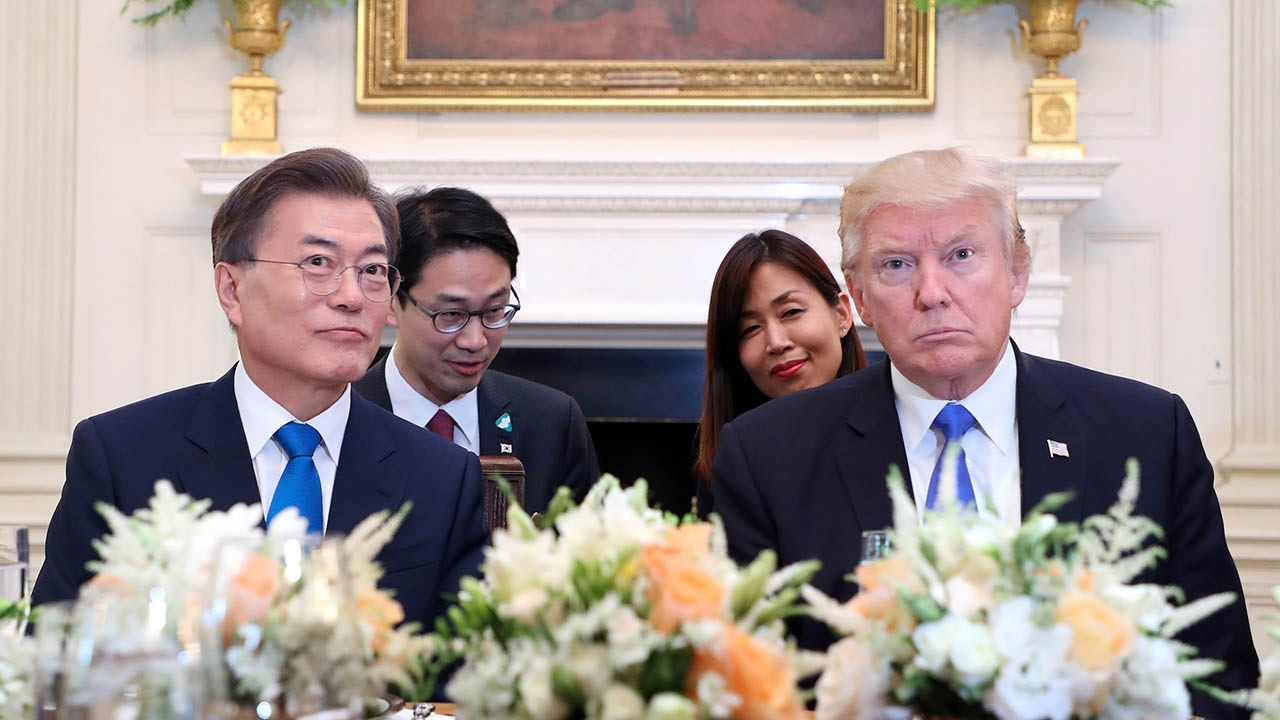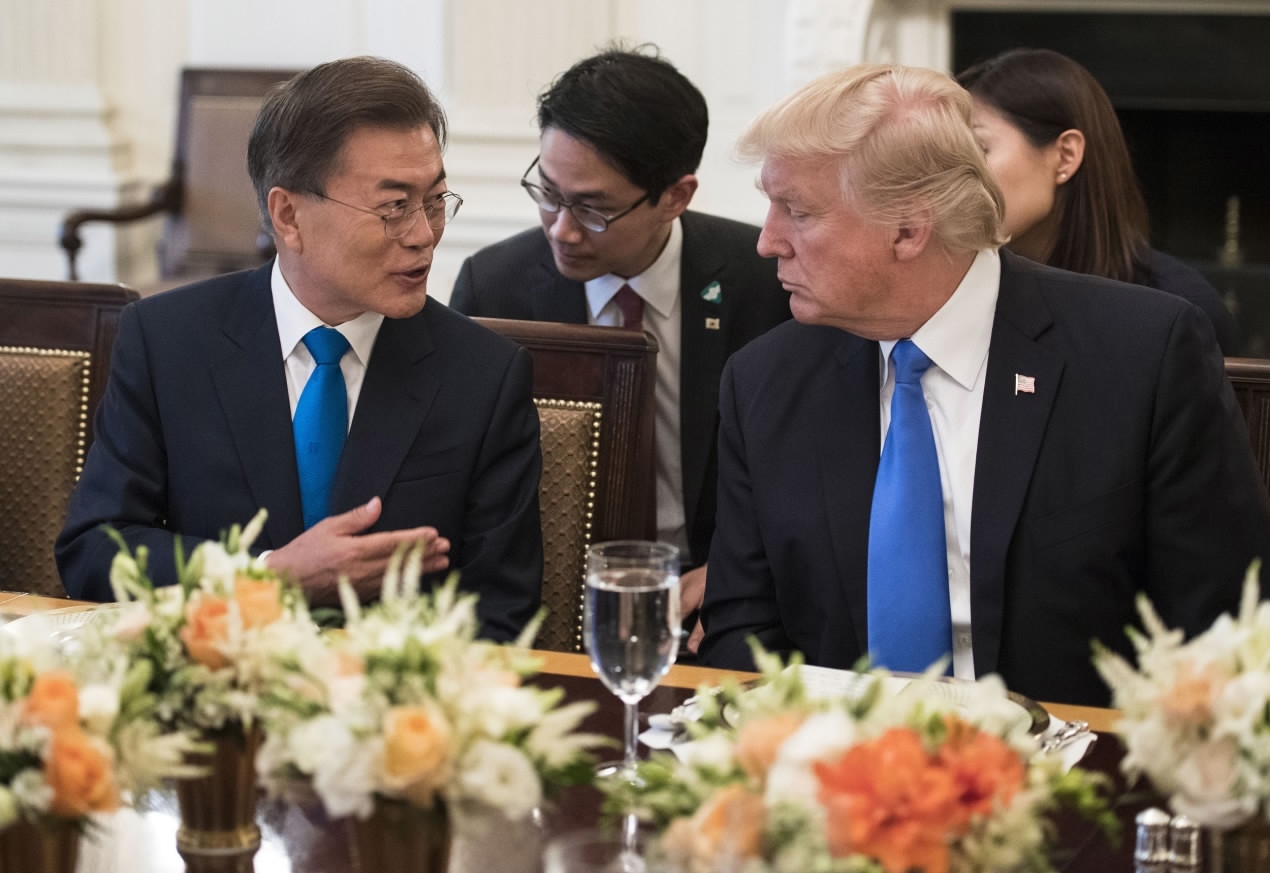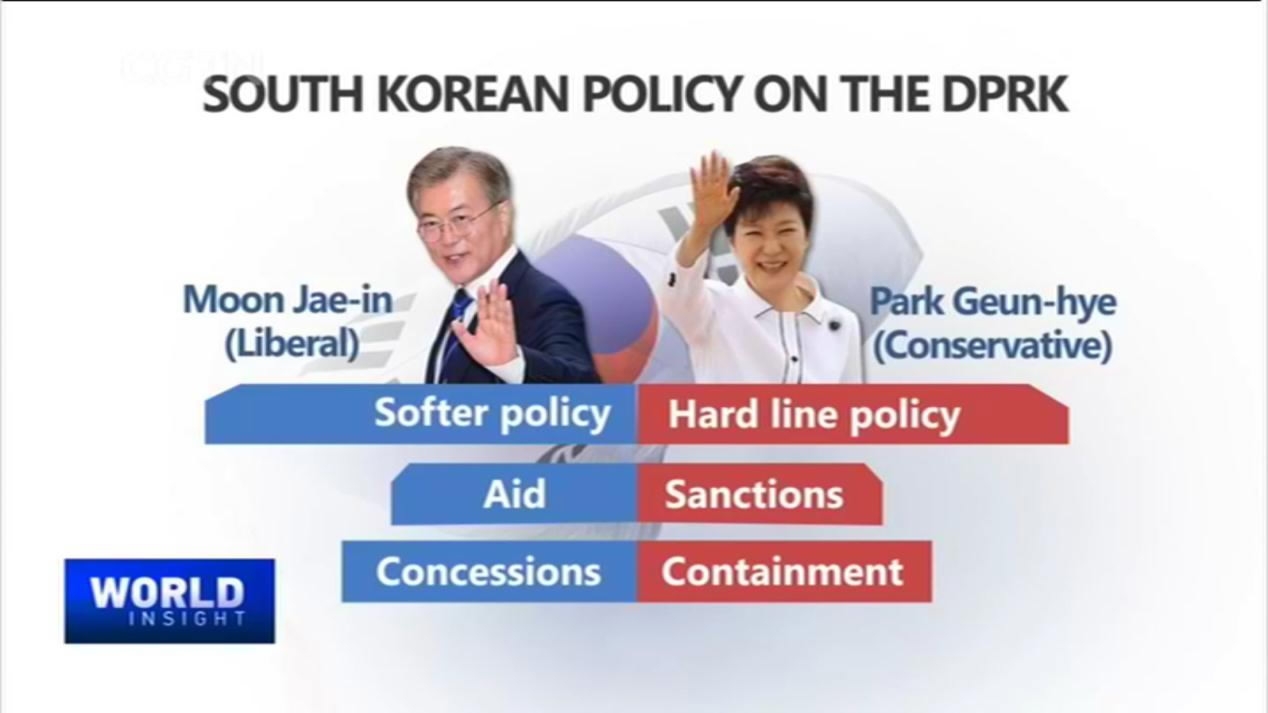
Politics
17:39, 30-Jun-2017
Trump and Moon on DPRK: Common goal, different approaches

By CGTN's Chen Pan
US President Donald Trump hosted South Korean President Moon Jae-in at a White House dinner on Thursday, telling him they would have “tremendous discussions” about dealing with the DPRK, the country he refers to as “dangerous”.
The DPRK's controversial nuclear program is expected to top the agenda for talks, but the two leaders have different views on the future of the country.
Trump has taken a hardline stance and hasn't ruled out the possibility of a military strike on Pyongyang. Moon on the other hand has been more measured in his comments.

US President Donald Trump (R) and South Korean President Moon Jae-in in the State Dinning Room at the White House on June 29, 2017. /CFP Photo
US President Donald Trump (R) and South Korean President Moon Jae-in in the State Dinning Room at the White House on June 29, 2017. /CFP Photo
“Denuclearization of the Korean Peninsula is the common goal and is the common base for both Washington's and Seoul’s policies. But same goal, different approaches,” said Yang Xiyu, a senior research fellow from the China Institute of International Studies.
He believes Moon is aiming to reduce pressure to begin negotiations.
Balbina Hwang, a former senior special adviser to the US State Department, believes that the stance of the two presidents may not differ very much, as South Korea is dependent on support from the US when it comes to the DPRK's nuclear threat.

President Moon Jae-in and his predecessor Park Geun-hye and their policies toward the DPRK /World Insight Photo
President Moon Jae-in and his predecessor Park Geun-hye and their policies toward the DPRK /World Insight Photo
But she pointed out that the key is not what South Korea and the US do, but how the DPRK responds.
“You can only engage when the other side is willing to accept it. And for the last 8 years, Kim Jong-un (the DPRK leader) has said no to President Obama,” she said.
Moon said on the campaign trail that he would take a softer approach to improve ties with Pyongyang.
This tack has been tried before. Seoul's “sunshine policy” towards the DPRK was adopted by South Korea during the Kim Dae-jung and Rho Moo-hyun presidencies, from 1998 to 2008.

SITEMAP
Copyright © 2018 CGTN. Beijing ICP prepared NO.16065310-3
Copyright © 2018 CGTN. Beijing ICP prepared NO.16065310-3